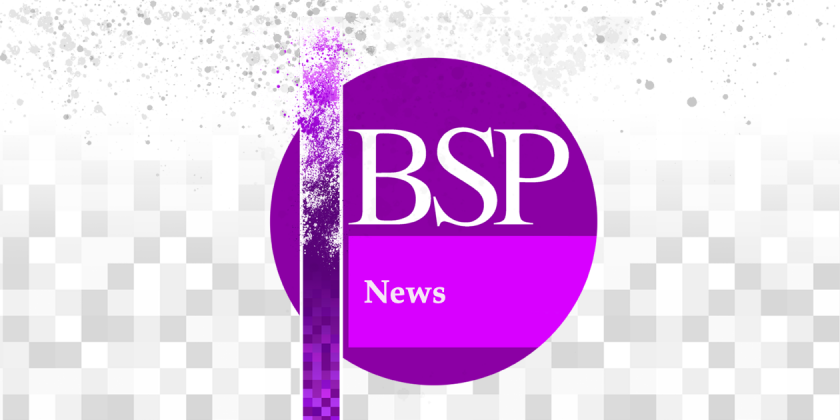Call for expressions of interest in DIAS Junior Fellowships in Applied Phenomenology is now open — deadline Dec. 16th, 2024.
Visiting Fellowships in Applied Phenomenology
Call for DIAS Junior Fellowships in Applied Phenomenology is now open — deadline Dec. 16th, 2024
Up to four junior fellowships are available for early career researchers working in applied or interdisciplinary phenomenology. Fellows will be hosted for a one-month stay by the Danish Institute for Advanced Study (DIAS) at the University of Southern Denmark (SDU). The primary purpose of the fellowship is to mentor and support early career researchers through the process of writing applications for externally funded post-doctoral positions to work at SDU.
During their stay, the fellows’ primary host will be Anthony Vincent Fernandez, Assistant Professor of Applied Philosophy. However, in their application documents, applicants should identify members of the DIAS Interdisciplinary Phenomenology Cluster who they might like to work with. Any member labelled as full-time (FT) faculty can potentially supervise or co-supervise proposed projects. And any member of the cluster may collaborate on proposed projects. A list of all members of the Cluster, with links to their profile pages, can be found on the Cluster homepage.
Fellows may come from any disciplinary background, so long as their project is in applied or interdisciplinary phenomenology and suitable supervisors can be identified. One of the available fellowships will be reserved for the DIAS-MoCS fellowship, which is for applicants who wish to conduct phenomenological qualitative research in the areas of sport, health, or performing arts. Please note in your application whether you would like to be considered for the DIAS-MoCS fellowship and, if so, which members of MoCS (the research unit of Movement, Culture and Society) you would like to work with. Full-time MoCS faculty include Susanne Ravn (Head of research unit); Anthony Vincent Fernandez; Signe Højbjerre Larsen; Simon Høffding; Sarah Pini. (Note: Applying for the DIAS-MoCS Fellowship may increase, but will not decrease, your overall chance of receiving a DIAS fellowship.)
Fellows will be provided with workspace at DIAS and will be able to participate in additional events taking place during the fellowship period. Ideally, the fellowship period will take place from mid-May to mid-June, 2025, which will allow fellows to join some of our events, such as PhD courses and conferences. However, it is also possible to schedule an alternative fellowship period.
DIAS: The Danish Institute for Advanced Study is an elite research center at SDU with a focus on interdisciplinary collaboration. Its chairs, senior fellows, and fellows represent all five faculties at the university. Members gather for weekly events, including regular talks by leading researchers from across all academic disciplines. More information about DIAS can be found here.
Eligibility: Fellows are expected to apply for the Marie Skłodowska-Curie Actions (MSCA) Postdoctoral Fellowships (anticipated deadline Sept. 2025)—in addition to other funding sources that they may identify themselves. Eligibility for the DIAS Visiting Junior Fellowships will therefore be the same as eligibility criteria for the 2025 MSCA fellowships. Typically, this requires that the applicant have a PhD before the MSCA deadline, which they have received less than eight years earlier. Moreover, as this is a mobility fellowship, applicants cannot have resided in Denmark for more than 12 months in the 36 months immediately preceding the call deadline. (Please see the above link for full eligibility requirements.)
Award: Fellows will be awarded up to 30,000 DKK (approx. €4,000). Typically, up to 15,000 DKK will be provided as reimbursement for travel and housing costs. The remaining 15,000 DKK will be disbursed as a one-time payment at the end of the research stay. (Note: The payment may count as taxable income in the fellow’s country of residence.)
Application Details: The application should include the following three documents, totalling two pages plus a CV:
(1) A project proposal (max. one page, single-spaced, 11 pt. font), which outlines a potential project in the area of applied or interdisciplinary phenomenology. The proposal should provide a brief motivation/background for the project before sketching the aims and methods. Projects that clearly span more than one discipline and might involve collaboration with Cluster members from different faculties will be prioritized. Projects can be theoretical or empirical, so long as the applicant can identify suitable supervisors. Please note that the purpose of the fellowship is not to carry out the proposed project. Rather, the purpose is to work with members of the Cluster to refine the project idea and develop a full proposal for external funding applications.
(2) An information sheet (max. one page, single-spaced, 11 pt. font) outlining (a) the applicant’s prior research insofar as it is relevant to the fellowship call; (b) which faculty members (listed on the Cluster homepage) the applicant would like to work with to develop the project proposal, and how their research overlaps with these faculty members; (c) which sources of postdoctoral funding the applicant intends to apply for following the initial fellowship period, including how they meet the eligibility criteria for this funding; (d) whether the applicant wishes to be considered for the DIAS-MoCS fellowship; and (e) where the applicant heard about the fellowship.
(3) A standard CV (no page limit), which should include, at minimum, education, employment, and presentations/publications.
Deadline: Applications should be emailed to A. V. Fernandez at [email protected] by Monday, December 16th, 2024. Decisions will be communicated by the end of January.
For general questions about the fellowship, including eligibility, project ideas, and help identifying potential supervisors, contact A. V. Fernandez. If you applied in a previous round but were unsuccessful, you may contact Fernandez for feedback and advice before submitting for the current call. If you have specific questions about collaborating with other members of the Cluster, you may also reach out to them directly.

